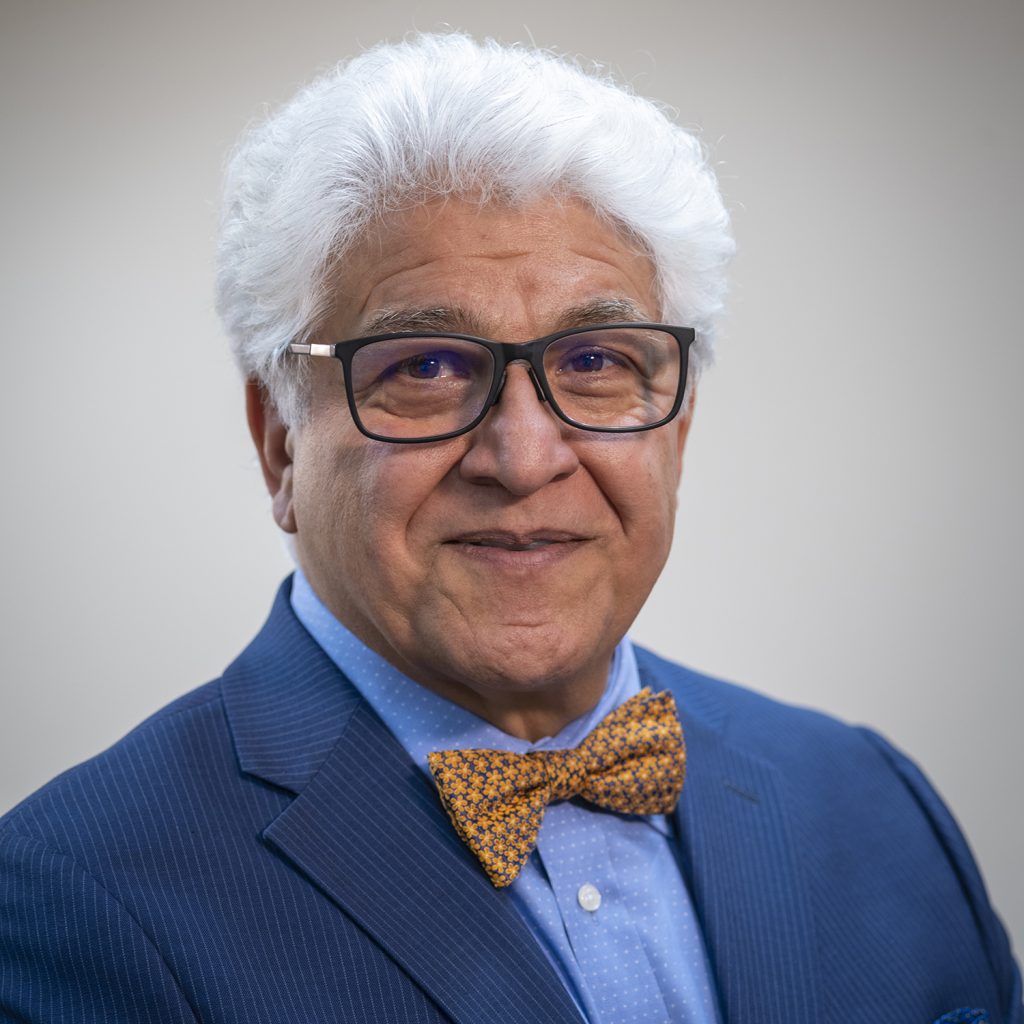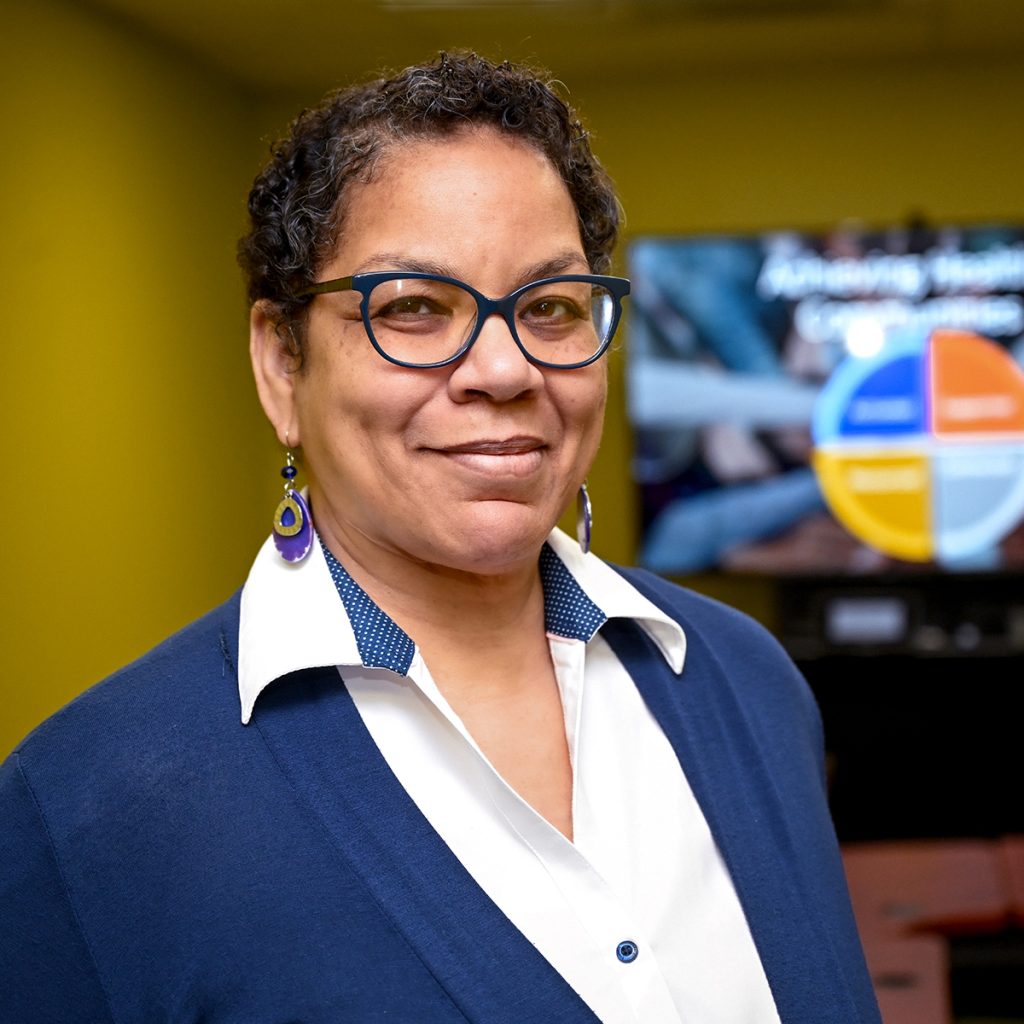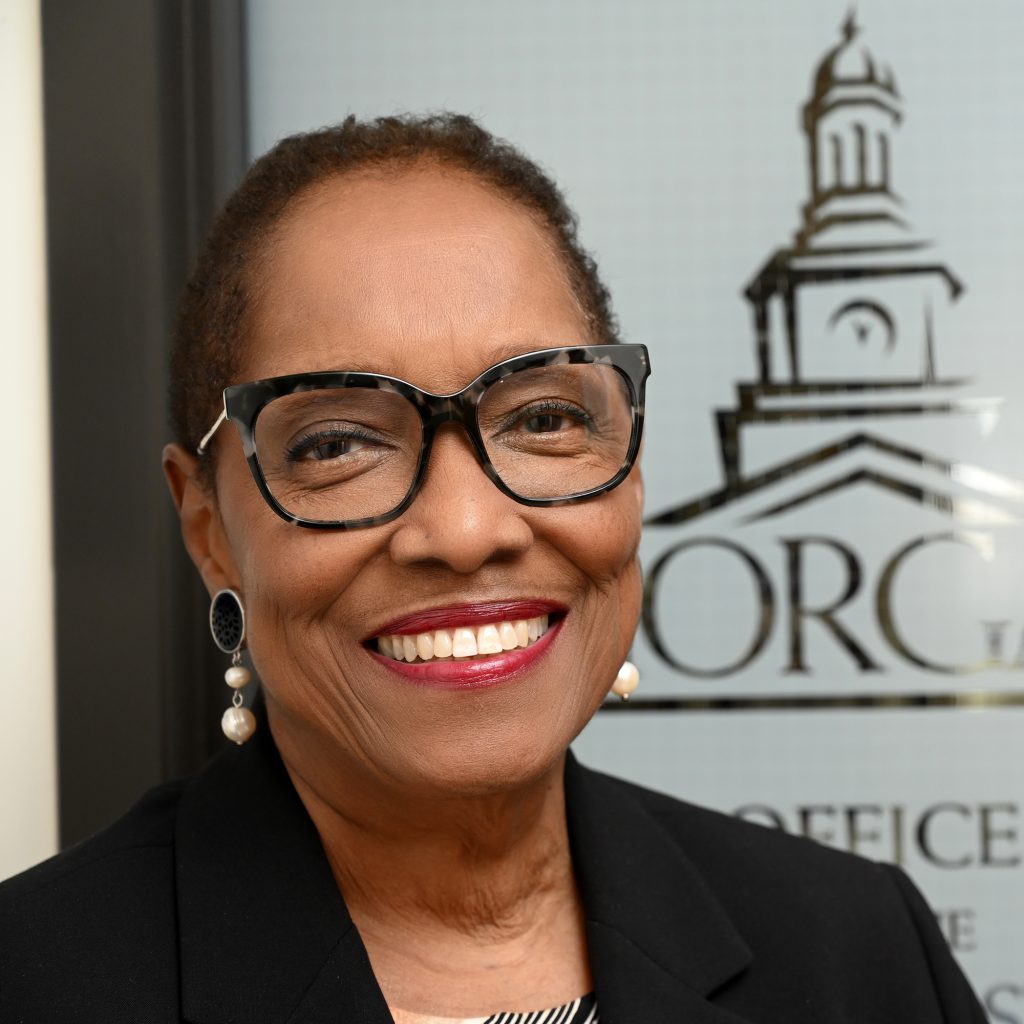By: Tory Parrish
New Morgan Research Centers Address Inequities in Baltimore and the Nation
All these centers sprang from different schools at Morgan, and they are reflective of Morgan’s mission to be an anchor public research university here in Baltimore.
-Patricia Williams-Dockery, Ph.D., MSU’s Associate Vice President for Academic Affairs
Morgan State University (MSU) is known as a trailblazer in high-level research, but the Baltimore institution of higher learning is making major strides in new areas, toward improving the educational, health and economic outcomes of residents in Maryland and beyond.
Of Morgan’s more than 20 academic and research centers, which fall under different schools and colleges at the University, four were started since 2021 to conduct research and partner with community groups to address inequities that represent quality of life deficits, particularly for Black and Latino populations: the Center for Urban Health Equity (CUHE), the Center for Data Analytics and Sports Gaming Research (DASGR), the Center for Urban Violence and Crime Reduction and the National Center for the Elimination of Educational Disparities (NCEED).
“All these centers sprang from different schools at Morgan, and they are reflective of Morgan’s mission to be an anchor public research university here in Baltimore,” says Patricia Williams-Dockery, Ph.D., MSU’s associate vice president for Academic Affairs.
The four centers will provide opportunities for faculty who are already doing research at Morgan to access more resources to elevate their work and make a greater impact on their fields of study, Dr. Williams-Dockery says. Three of them — the Center for Urban Health Equity, the Center for Data Analytics and Sports Gaming Research and the Center for Urban Violence and Crime Reduction — were among five Morgan research centers that were launched with more than $11 million annually in State funding.
A synopsis follows of the work the four research centers will do:

We wanted to do research on the disastrous effects of gambling in minority communities, disproportionate gambling problems compared to other communities.
–Ali Emdad, Ph.D., Associate Dean, Earl G. Graves School of Business and Management, MSU
Center for Data Analytics and Sports Gaming Research
The prevalence of gambling disorders in Black communities is double that in white communities, several studies have found. After Marylanders voted to legalize sports betting in the state in 2020, Morgan President David K. Wilson and Ali Emdad, Ph.D., associate dean of the Earl G. Graves School of Business and Management at Morgan, submitted a proposal to the State for funding to create the University’s Center for Data Analytics and Sports Gaming Research, Dr. Emdad says. “We wanted to do research on the disastrous effects of gambling in minority communities, disproportionate gambling problems compared to other communities,” says Emdad, who reports that the State approved funding for the center last July. DASGR’s research will also include study of opportunities for minority entrepreneurship in electronic sports video gaming, called “esports.” The center will also use data analytics to study sports outcome and prediction models and will examine health issues related to sports gaming and esports, and the impact of laws on sports gaming and esports activities. “The other aspect was not only would Morgan students be informed about data analytics, but other HBCUs in the state of Maryland can benefit from the courses and workshops and other events that we organize for informing the HBCU community,” Emdad says. The center already is partnering with the Maryland Center of Excellence on Problem Gambling at the University of Maryland School of Medicine on scheduling workshops at Morgan, he adds.We want to make sure that health is a right, not a perpetual fight.
-Kim Dobson Sydnor, Ph.D., Dean of Morgan’s School of Community Health and Policy and Director of Morgan’s Center for Urban Health Equity

Center for Urban Health Equity
Mental health issues are the most significant health concern in Baltimore’s Black community, and they influence choices that affect physical health, such as decisions about food consumption and drinking, says Kim Dobson Sydnor, Ph.D., ’97, dean of Morgan’s School of Community Health and Policy and director of the Center for Urban Health Equity. CUHE, which started in 2021, aims to connect faculty with community members and organizations to engage in research to improve the health of Baltimore’s residents, and to build a network of resources to give residents support, Dr. Sydnor says.
“But we are really wanting to do the work that we think resonates with community,” she continues. “(It) should be driven by the community to some extent, because the center’s mission as a state-funded entity really is to have an impact on the citizens of Baltimore City, in particular, and then the broader state.”
Housed within Morgan’s School of Community Health and Policy, CUHE has three full-time research faculty members and one part-time research scientist on staff, Sydnor says. Initial financial support included $500,000 from the $40 million that philanthropist MacKenzie Scott gave the University in 2020, and an annual $3-million appropriation commitment to Morgan’s operational budget from the State of Maryland.
One of the center’s initiatives involved setting aside $100,000 from the Scott donation to use as seed money for 12 community health and wellness projects based on work the center has done with a partner group, the nonprofit Family League of Baltimore, Sydnor says. The league managed the 12 grants provided to individuals and organizations.
Within five years, the center should be a fully functioning entity that runs data analytics, trains post- and pre-doctoral students, engages in solid collaboration around heath equity work and conducts research that changes policies and communities, Sydnor says.
“We want to make sure that health is a right,” she says, “not a perpetual fight.”

Dr. McPhatter says the Center for Urban Violence and Crime Reduction will look at the broad, complex issues that cause crime: vital work that will involve conducting evidence-based research and collaborating with Baltimore community groups to develop effective intervention strategies.
Center for Urban Violence and Crime Reduction
Policing is not the only answer to reducing or solving crimes in urban areas, says Anna McPhatter, Ph.D., dean of Morgan’s School of Social Work. The Center for Urban Violence and Crime Reduction will look at the broad, complex issues that cause crime: vital work that will involve conducting evidence-based research and collaborating with Baltimore community groups to develop effective intervention strategies, she says.
The nation has a “history of people doing research in urban communities…that (has) no community input, that (has) no voice at the table with people who have a history, the connectedness, the ownerships, the involvement,” Dr. McPhatter says.
One example of the disconnect between communities and government leaders is the lack of quality early childhood education available in the United States, despite research having found that students who enrolled in these programs went into special education programs at lower rates, went to college at higher rates, earned more money in adulthood and engaged with the criminal justice system at lower rates than those who weren’t enrolled, McPhatter says.
Planned as a multidisciplinary entity, the Center for Urban Violence and Crime Reduction falls under the School of Social Work and will also include research faculty from the School of Education and Urban Studies.
“As social workers, we have a more nuanced understanding of behavior than some other people might,” such as in examining the causalities and ideologies of some social issues, McPhatter says.
The center’s goal is to become a national model of an HBCU demonstrating groundbreaking work through research, education and training, and to become a clearinghouse for developing new theories and strategies, she says.
The center received funding of $2 million from the State in July 2022 and is in the process of hiring staff, McPhatter reports.
Morgan’s National Center for the Elimination of Educational Disparities will focus on more than improving test scores, says Dr. Prime, who adds that the center’s work will aim to reframe conversations around equity and transforming culture in schools.
National Center for the Elimination of Educational Disparities
Launched in September 2022, NCEED was created to improve educational outcomes for Black, Latino and economically disadvantaged students in Maryland and nationwide.
“We want this to be a (truly) national center,” says Glenda Prime, Ph.D., dean of Morgan’s School of Education and Urban Studies. “We will certainly be starting in Baltimore and in Maryland, but we are hoping that the things we develop and the approaches that we begin to implement here (can) be scaled…because the problem is a national problem.”
The 2021–2022 Equity Metrics Report for Baltimore County found that socioeconomically disadvantaged students of the county’s public schools were a large portion of the more than 50% who showed “notably lower” rates of reaching reading and math benchmarks than their peers in the school district, The Washington Post reported in October. Among racial and ethnic groups, Black students lagged furthest in achievement, except in the category of kindergarten readiness, the Post reported. The Measure of Academic Progress tests of elementary school math showed that Black students’ pass rate was 21.5 percentage points lower than that of their peers, and the middle school math gap was 20.3 percentage points, the newspaper reported.
Morgan’s National Center for the Elimination of Educational Disparities will focus on more than improving test scores, says Dr. Prime, who adds that the center’s work will aim to reframe conversations around equity and transforming culture in schools. The center will conduct outreach to students’ families and communities to understand how inequities are being experienced and will also conduct research that involves developing interventions, including partnering with schools, to improve the educational attainment of Black, Latino and economically disadvantaged students, says Prime, “so that when we come up with interventions, they reflect the real experiences of teachers in school and administrators.”
In 2022, President Wilson authorized funding of $100,000 in seed money for the center over three years. NCEED has retained Morgan alumnus Walter Fields to help conceptualize the center, leveraging expertise Fields gained developing a similar program that was successful in New Jersey, Prime reports.





